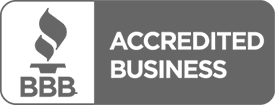Overview
As this is one of our combination programs, you will find that there are two different course descriptions; one for each portion of the program:
Mediation:
Mediation and dispute resolution are rapidly growing fields of study and sought-after skills in the workplace. This comprehensive course provides the core skill sets necessary for the practice of mediation. As it becomes more and more apparent that individuals, families, groups, organizations, communities and nations must begin to work together in peaceful ways for the common good, mediation and dispute resolution are poised to become increasingly popular. In mediation, a neutral third party, mediator, works with both sides of a dispute to have them agree on their own terms, without someone else deciding what is best for them. Students are guided through stages of mediation and how these stages apply to actual case studies of mediation. Students are offered an overview of the nature of conflict and differing styles of human interaction and are asked to explore their unique style of engaging or avoiding conflict and how this might affect their role as a mediator. The course presents an overview of theories of conflict and power, influences of gender and culture and how each helps inform a mediator’s interventions. The important skill set of negotiation, including how to apply negotiation techniques, the critical issue of timing, and caucuses and other techniques to deal with impasses in the mediation are presented. The course covers the standards and ethics of this growing profession. Students learn core people skills such as reflective listening, impartiality, reframing, effective communication, and the handling of critical moments.
Paralegal:
This course is the core of the Paralegal Associate program. Students will learn the past, present, and future of the paralegal profession, including the paralegal defined, educational options, techniques for marketing skills and career opportunities. Instructions on ethics and professional responsibility, the organizational structure of the legal workplace and office culture and politics will prepare students for the challenges of today’s paralegal. Students receive a formal introduction to the law by examining sources of American law, the court system, alternative dispute resolution, substantive law in its various forms, as well as administrative law and government regulation. Legal procedures and advanced skills involving civil litigation and trial procedures, criminal law, conducting interviews and investigations, using primary and secondary sources to legal research, the emerging technology of computed assisted legal research, in addition to legal analysis and writing provide valuable insight and a solid foundation for the future legal assistant.







